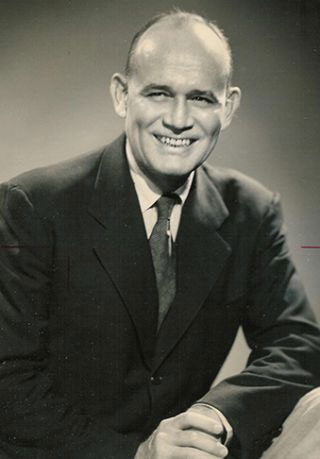If you’ve never heard of or watched the movie The Three Faces of Eve, pause now and at least Google it.
Dr. Hervey M. Cleckley was a luminary in the realm of psychiatry whose insights continue to illuminate the shadows of the mind, some two decades after his passing.
Unveiling the Man Behind the Legend

By definition (by the very star of this musing, actually), psychopathy is “A disorder characterized in part by shallow emotional responses, lack of empathy, impulsivity, and an increased likelihood for antisocial behavior.”1 Let’s take a moment to shine a light on the life and legacy of Hervey Cleckley, born into the tapestry of Augusta, Georgia in 1903, amidst the backdrop of a changing world.
From an early age, Cleckley’s insatiable curiosity led him on a quest for knowledge (because that’s the role he, as a soul, chose to play in this world), weaving through the corridors of academia with a voracious appetite for understanding the human condition (let’s face it, the human experience could and should be classified as a mental condition on its own). After earning his medical degree from the University of Georgia in 1924, Cleckley embarked on an odyssey, studying psychiatry at the University of Oxford and the University of Vienna (a certain Sigmund Freud’s alma mater only about 40 years later).
The Enigma of Psychopathy
 It was during his travels that Cleckley stumbled upon the enigmatic phenomenon of psychopathy—a puzzle that would captivate his imagination for decades to come. Through his clinical work and research, Cleckley sought to unravel the mysteries of psychopathy, peering into the depths of the human mind with a keen eye and his own mind wide open.
It was during his travels that Cleckley stumbled upon the enigmatic phenomenon of psychopathy—a puzzle that would captivate his imagination for decades to come. Through his clinical work and research, Cleckley sought to unravel the mysteries of psychopathy, peering into the depths of the human mind with a keen eye and his own mind wide open.
Drawing upon his experiences as a psychiatrist, in 1941, Cleckley penned his magnum opus, “The Mask of Sanity,” an exploration of psychopathy that shattered conventional wisdom and challenged the fabric of our understanding of human nature. In this book, Cleckley illuminated the landscape of psychopathy, painting a vivid portrait of individuals who traversed the boundaries of morality with ease and impunity. (I’d say we’re all on the spectrum, though it appears these individuals are that much more willing to go the distance for an outstanding performance in this theater). Cleckley also co-authored a book with Corbett H. Thigpen called “Three Faces of Eve”, about a woman they treated and suggested might suffer from dissociative identity disorder (then known as multiple personality disorder). The book became the 1957 film of the same name, starring Joanne Woodward, and Cleckley helped write the screenplay. Woodward won the Academy Award for best actress, making her the first actress to win an Oscar for portraying three personalities (Eve White, Eve Black, and Jane).
To shed light on Cleckley’s contributions to the field of psychiatry, we only need to turn to his co-author on Three Faces of Eve, Corbett H. Thigpen, who sums it up nicely. “Hervey Milton Cleckley was a master physician and instinctively practiced the art of medicine. He had the simplicity of true greatness, the open mind of true wisdom, and the meekness of true strength.”
Following the release of Three Faces of Eve in 1957, Cleckley wrote “The Caricature of Love”: A Discussion of Social, Psychiatric, and Literary Manifestations of Pathologic Sexuality. With his extensive clinical knowledge and experience, in this book, Cleckley plumbs the depths of sexual dysfunction and “perversion”, exposing their influence on culture and society during that era. While Cleckley’s views on homosexuality may be typical of his time, his analysis has broad applications, bringing insight to the dysfunction in homosexual and heterosexual relationships, the probable causes, and the sexual perversion of many of the “leaders” of our literary heritage. From Plato to the Marquis de Sade, and Andre Gide to Evelyn Waugh, Cleckley describes the twisted views of sexuality popularized in art and literature, making them highly relevant in today’s hyper-sexualized culture.
In concert with his more famous work on psychopathy, The Caricature of Love sheds important light on the problems of psychopathology. As is becoming increasingly clear in our time, positions of leadership are being saturated with individuals who tend to be higher on the spectrum, manifesting in everything from government incompetence, economic failure, endless wars, and civil oppression to human trafficking and pedophilia rings. Cleckley exposes the nature of what lies beneath those manifestations.
Navigating the Depths
As we navigate the depths of the human psyche ourselves, we honor the legacy of Hervey M. Cleckley, a trailblazer whose courage and curiosity led him to some pretty ‘effed up’ reaches of the human mind. Through his odyssey, Cleckley reminds us that the true essence of humanity lies not in our strengths or our weaknesses, but in our capacity for empathy, compassion, and understanding. The question is, are we empathizing with who we really are, or mistakenly with the roles we are playing. Can we have compassion for the souls who have courageously chosen roles(!) that can be ostracized, judged, damned and sentenced to “death”? Do we dare attempt to understand how absolutely inconceivable the disparities of what we perceive truly are?
We have embarked on this journey together (whether we realize it, or remember it or not) with open hearts and open minds, as we continue to unravel the mysteries of the One Mind as it manifests as the human psyche and chart a course towards greater understanding and harmony.
All our love,
